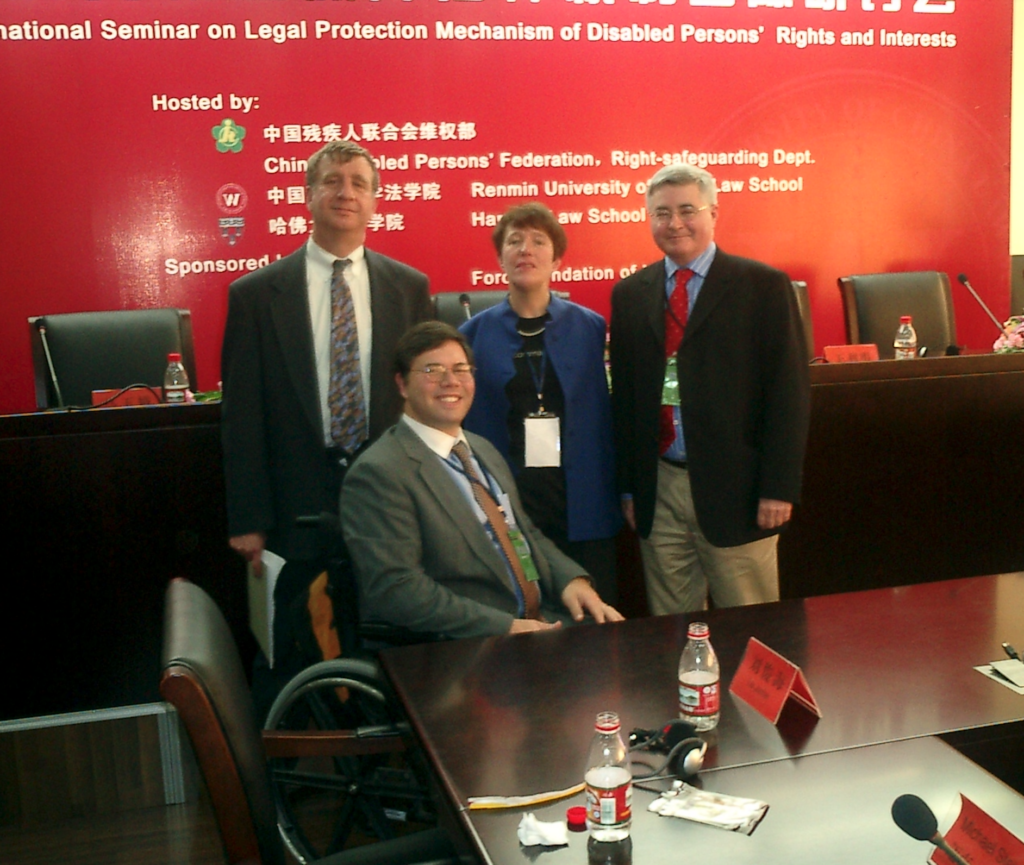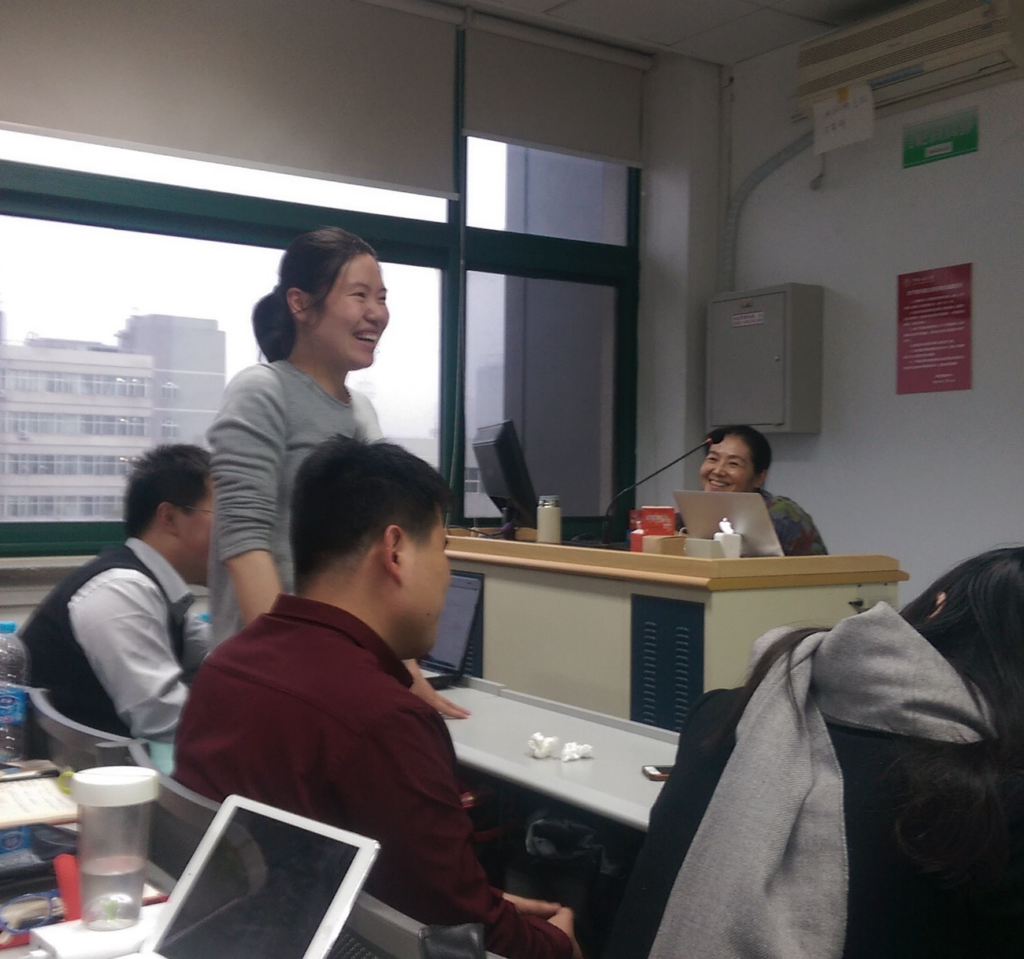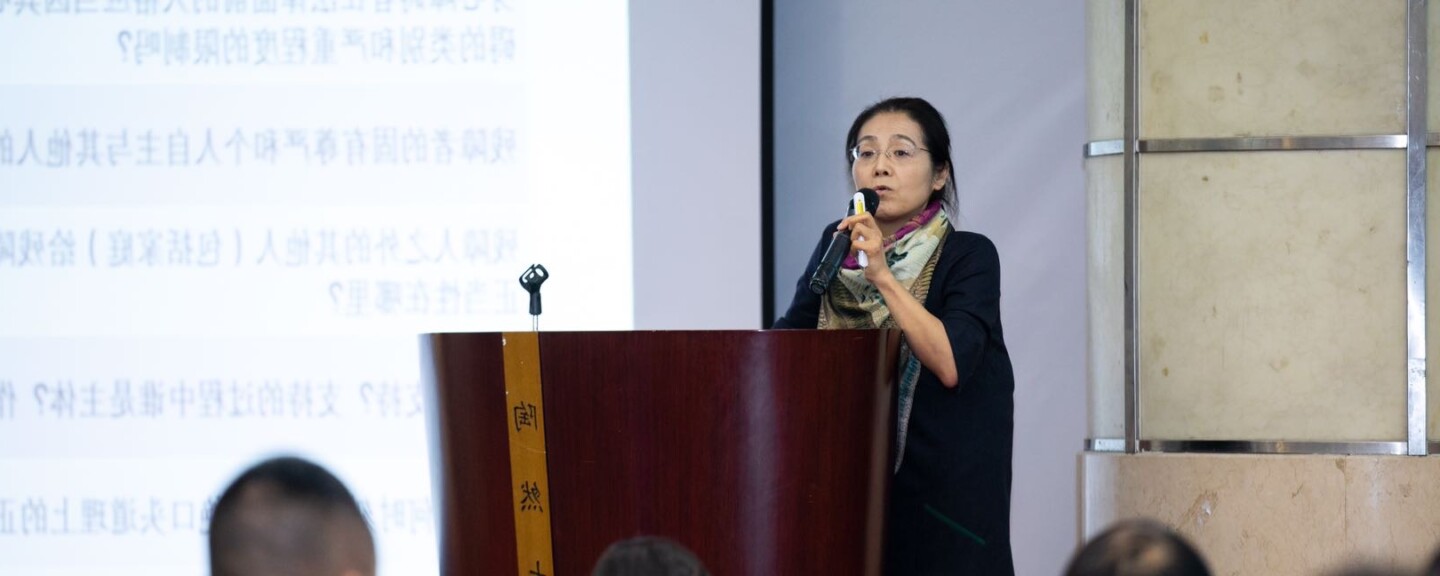Harvard China Fund in Action: In 2008, professors at the Harvard Law School Project on Disability received a faculty grant to support their work in China. With the help of Dr. Fengming Cui, the Project has played an essential role in advancing Chinese disability laws, policies, and education.
March 1, 2024
All eyes are on Dr. Fengming Cui and her Teaching Assistant, Cong Cai, as they enter their classroom in Beijing’s Renmin University. In the initial moments of class—before the lecture has begun, before the PowerPoint has loaded—Cui and Cai have already taught their students the most valuable lesson of the semester: A disability rights expert and a TA who is a respected activist, both with disabilities themselves, are leading a course at one of the most prestigious law schools in China. Cui and Cai have just redefined their students’ concept of ableism, challenging stereotypes regarding individuals with disabilities that many people hold.

It is not yet common for experts with disabilities to teach at a university in China. And so in its own modest way, this teaching moment embodies the profound impact of the Harvard Law School Project on Disability (HPOD). Established in 2004, the Project seeks to promote the dignity of persons with disabilities by advancing disability law, policy, and education around the world. The team is led by its two co-founders: Professor William Alford, Jerome A. and Joan L. Cohen Professor of Law and HPOD Chair; and Professor Michael Stein, Visiting Professor of Law, HPOD’s Executive Director. “HPOD seeks to integrate our academic work with our pro bono service – now in more than 40 nations – bringing to bear a host of different examples and experiences, and always learning as we are doing,” says Alford.
Alford and Stein’s pro bono work on disability in China commenced even prior to HPOD’s founding, with Alford traveling to China well before the turn of the century to explore greater opportunities for persons with intellectual disabilities via Special Olympics. After two years of preparation, together with colleagues at Renmin University, in 2007 Stein and Alford held the PRC’s first ever conference on disability rights. From it, they (and their co-authors) later that year produced one of the first studies published in the PRC on these issues. In 2008, the Harvard China Fund made a grant to HPOD that enabled it to take its work in China to a new level, including the introduction of disability law as a course at Renmin University (a first for the whole country).

In collaboration with faculty at several Chinese universities, the Project’s China program organizes half-semester law clinics for students in Beijing. These hands-on courses are the first of their kind in China. They bring light to domestic disability policies and provide effective methods of practicing important laws. Students also engage with local community leaders with disabilities, who serve as advisors for their research projects. Cui, a trained disability rights expert whose academic background focuses on justice and education, joined the China program as director in 2008, soon after earning her doctorate at Boston University.
With two decades of dedicated work and partnerships, the China program is at the forefront of U.S.-China engagement on disability issues. “Such a subject is still young in Chinese law school curriculum,” Cui notes. “It is meaningful that we can do this.” Despite challenges in the U.S.-China relationship, cooperation on disability rights remains steadfast. Indeed, for several years over the past decade, students from Harvard Law School and Renmin University taking part in courses on the challenges of the bilateral relationship met electronically to discuss disability, as well as several other issues in the relationship.
Beyond teaching, the Project offers academic support to local disability organizations to develop policy research and training curricula for persons with disabilities, their families, and other stakeholders. Cui explains this is no simple feat: “[Our work] is complex and challenging. It is a huge endeavor to improve disability inclusion policy and practice for equal participation and sustainable development of persons with disabilities.” According to Cui, China’s general education system still lacks support for students with disabilities and special learning needs, which can have lasting consequences on their quality of life.

The biggest barriers facing persons with disabilities globally are discrimination and prejudice. This is true in China, as well. While the country has made some improvement in addressing such issues of exclusion and segregation, society continues to view disability as a problem to be “fixed” or pitied. Cui notes, “disability is seen mainly from the medical perspective as an abnormal state of an individual. Raising awareness and changing attitudes is the basis of all our work in China and beyond.”
Meanwhile, some promising new laws and policies present a sign of opportunity for persons with disabilities. Enacted in September 2023, the PRC Law on the Construction of Accessible Environment focuses on improving access to physical infrastructure, information, and services for persons with disabilities, seniors, and others in need of accessibility. For the first time, a policy finalized in 2017 requires the provision of accommodations for students with disabilities to take the National Examination for College, or gaokao (高考), giving them the opportunity to attend university and compete for degree-bearing jobs. An increasing number of students with disabilities are now attending university, stimulating new thinking about how to address segregation in education and promote broader social inclusion.
An additional feature of the China program’s work is to nurture the interest of college, law, and other students in disability rights at Harvard and in China. For example, through its Student Internship Program, Harvard China Fund has placed three Harvard undergraduate students to work with Cui and the One Plus One Group for Disability, a non-profit organization in Beijing and Shanghai. The team in Shanghai includes 30 employees, each with a disability. Sophomore Jeslyn Liu spent the summer of 2023 interning at the Shanghai office. “Though I learned so much through the work I was assigned, I learned just as much—if not more—from conversing with my coworkers about their experiences,” says Liu. She adds, “Contributing to a movement that directly impacts the livelihoods of those around me was eye-opening.”
While the Project’s China team has witnessed many promising developments in their work, there’s still a lot to do in China, as well as everywhere else. “Our disability work is gratifying and we have gained a great deal of wisdom, compassion, and dedication from our colleagues in China. What we’ve learned in China is beneficial to our disability work globally. This is a win-win,” Cui notes. “With our partnerships, we will keep raising awareness among future lawyers, persons with disabilities, and their supporters. Disability work is not a charity thing mainly for persons with disabilities. It is instead for the interest of all in society. We hope that our work can help people to understand that obstacles facing persons with disabilities affect the entire society.”
For more on HPOD, please visit www.hpod.org.
For more information about Harvard China Fund’s faculty grants, please visit our faculty grants page.
